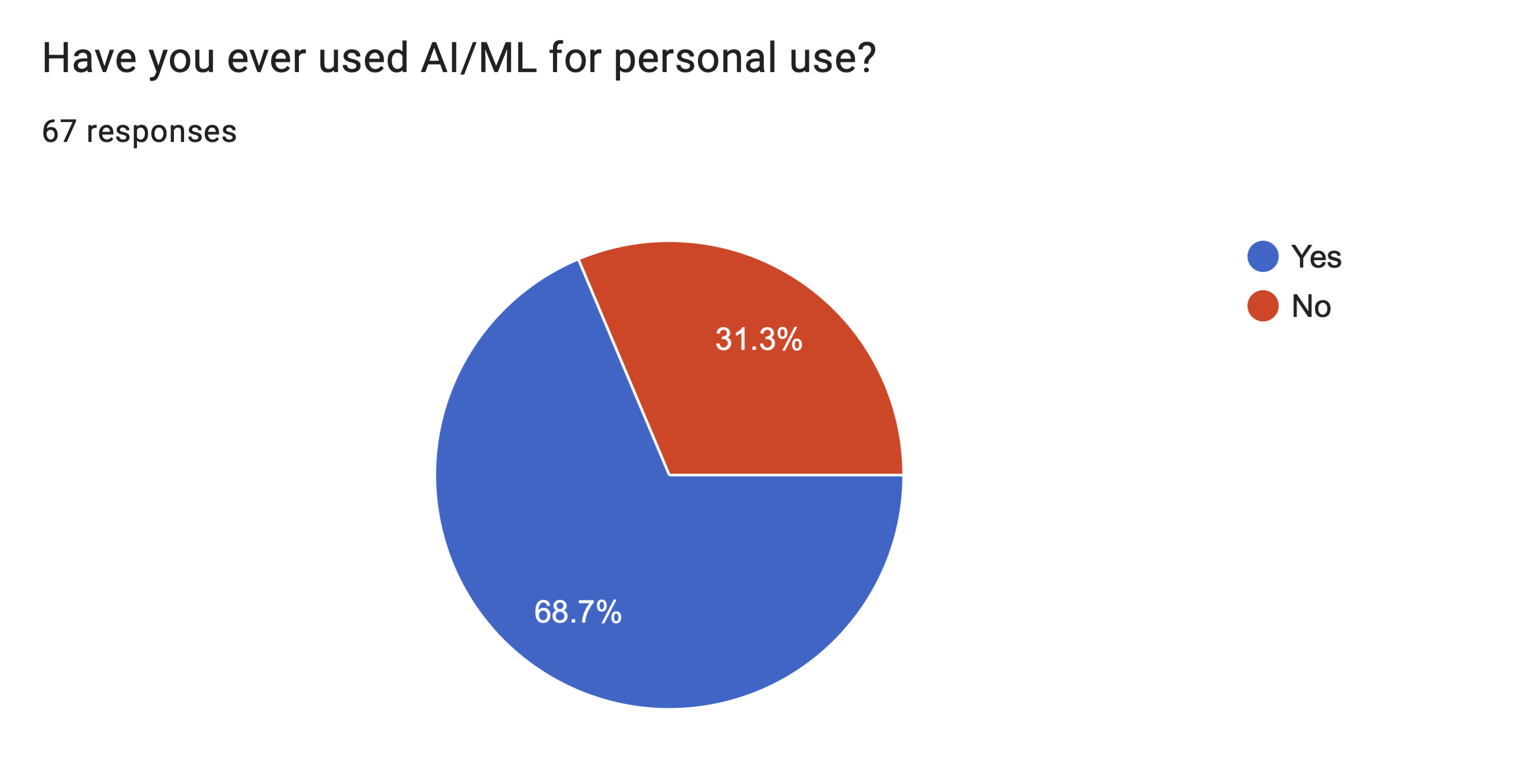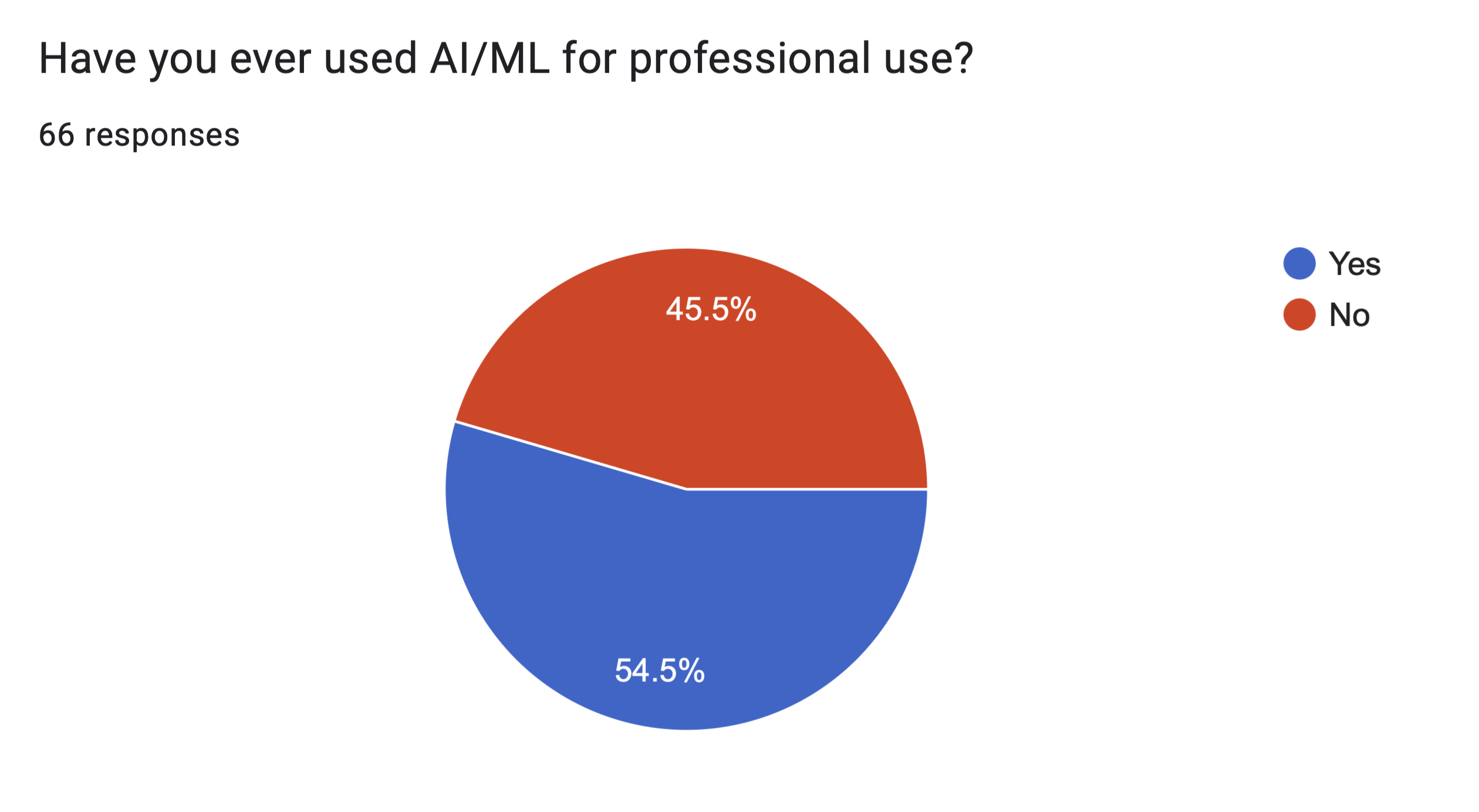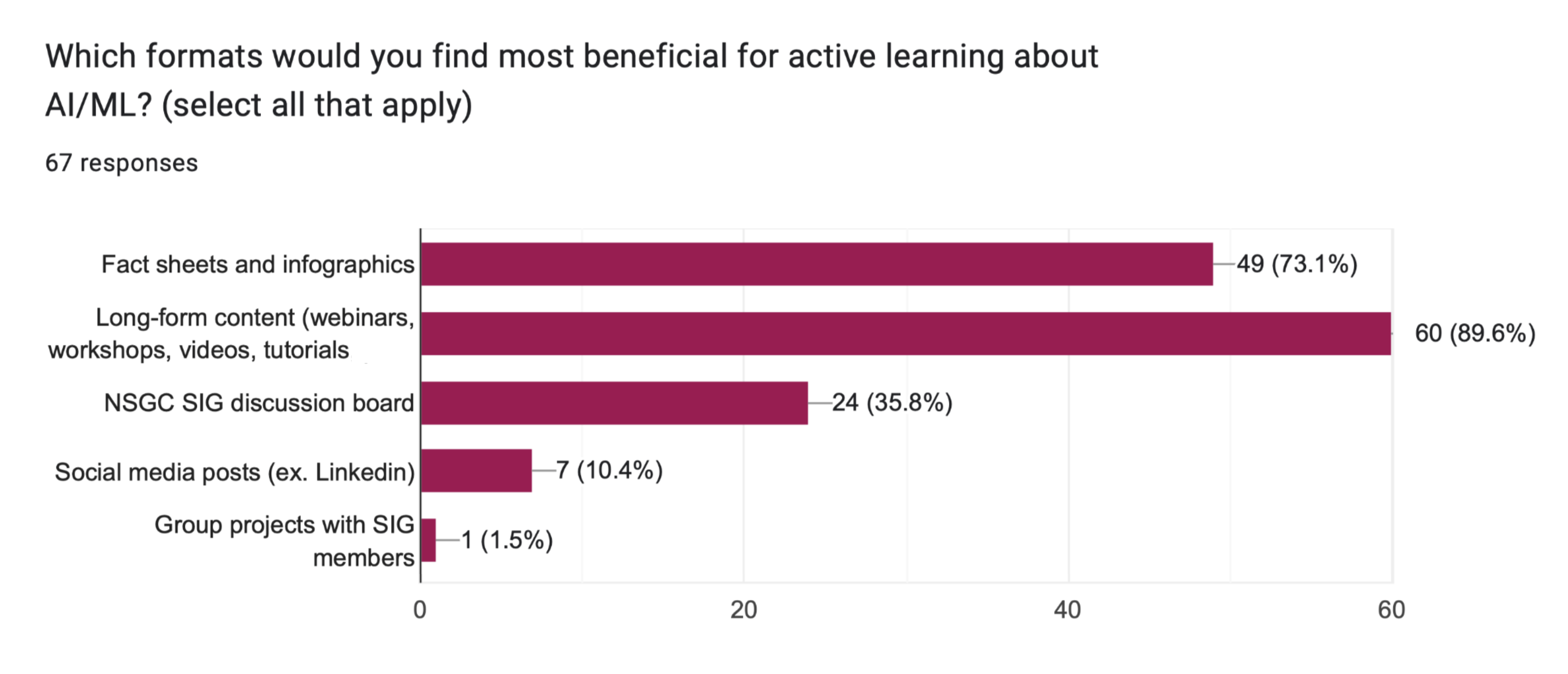The article below reflects the personal opinions of the author(s) and does not reflect the views or opinions of the Perspectives editors or committee, or the National Society of Genetic Counselors (NSGC).
We are excited to introduce everyone to the AI/ML Subcommittee — a team of diverse genetic counselors with a wealth of expertise and united by a shared passion for advancing the intersection of artificial intelligence (AI), machine learning (ML) and genetic counseling. Our mission is to bridge the gap between cutting-edge AI/ML technologies and their practical, ethical and clinical applications in our field. We believe genetic counselors (GCs) are not just participants but essential creators, trainers and users of AI and ML technologies in clinical genomics.
The Broad Implications
AI and ML are transforming genomics, offering new opportunities for diagnosis, risk prediction, patient care and communication. Genetic counselors play a critical role in addressing challenges like ethical considerations, algorithmic bias and equitable access. By actively shaping the development and use of these tools, we can ensure they enhance — rather than overshadow — the human element of genetic counseling.
While AI is already impacting a wide range of professions, including genetic counseling, experts predict its role will be to enhance effectiveness and efficiency rather than replace us altogether (Kearney, 2019). In fact, as AI reshapes traditional roles, it is expected that the value of uniquely human attributes — including empathy, adaptability and others already mastered by GCs — will become even more evident. Meanwhile, AI literacy, model training and optimization are becoming increasingly demanded skills in the workforce (Levanon, 2024). To stay competitive not only within genetic counseling but also across science and healthcare, genetic counselors must acquire new skills and develop these emerging competencies.
A Call to Action for Genetic Counselors
Integrating AI/ML into health care has sparked both excitement and skepticism. Adopting an opportunity mindset enables us to view these technologies as a means to enhance our profession. By working with AI/ML — not against it — we can automate time-consuming tasks, freeing up time for patient care, research and other critical activities that require empathy and human judgment. While these technologies offer tremendous potential, they also pose risks, so we must actively engage in understanding and mitigating them. By participating in their development and adoption, we can ensure these tools align with our profession’s ethical standards and values. This perspective can empower GCs to spot innovative ideas and embrace advancements that support the core values of our practice.
- Upskill for Impact: AI/ML literacy is essential, even for those skeptical of its current uses. As subject matter experts, we should aim to understand these technologies, evaluate their outputs and develop informed opinions that drive meaningful discussions and generate new project ideas. While AI engineers develop models, it is — in our opinion — our uniquely positioned role to guide their application in healthcare and specifically in genetic counseling.
- Stay Ahead: Keep up with AI/ML advancements in genetics to make informed decisions and provide the best possible care for our patients.
- Join the Conversation: Engage with our Subcommittee, share insights and help shape how AI/ML is integrated into our field. We invite you to suggest content or share use cases for future discussions. Equally important, we welcome discussions on the challenges, risks and limitations of AI/ML, as these perspectives are crucial for maintaining a well-rounded view within our community.
Identifying Education and Resource Gaps
This past summer, our Subcommittee conducted an online survey within the genetic counseling community using a mix of closed and open-ended questions. The survey was promoted through the NSGC listserv and LinkedIn to gain a deeper understanding of the profession’s needs related to AI/ML. We asked about the current state of knowledge, comfort levels and access to relevant AI/ML resources in both professional and personal contexts. The feedback from 67 respondents was consistent: while many GCs are curious about AI/ML, there is a clear and pressing need for accessible education, hands-on resources and real-world examples of these tools in action.


Based on survey results, 89.6% of respondents indicated that long-form learning opportunities would be the most beneficial. To this end, the AI/ML Subcommittee is considering the following possible options for programming:
- Webinars featuring experts in AI and genomics to discuss real-world applications and case studies.
- Workshops to help genetic counselors upskill and gain confidence in using and evaluating AI/ML-driven tools.
- Collaborations with other SIGs and professional organizations to create multidisciplinary opportunities for learning.

Introducing Our Newsletter!
One of our major initiatives this past year was the launch of our new newsletter, AI/ML for Genomics and Genetic Counseling, in November of 2024. This resource informs readers about the latest advancements in AI/ML related to our field. You’ll find curated articles, research highlights, ethics discussions, and more. Whether you are a seasoned professional or a student exploring the landscape, our newsletter is here to guide you. Check out our second issue and subscribe here to join our growing community of 400+ subscribers!
Moving Forward Together
Remember, our collective engagement is not just about staying relevant — it's about ensuring that GCs' unique insights and expertise are at the forefront of these technologies, whether those in development or already live in our healthcare systems. We’re committed to supporting our peers in navigating these technologies and their impact on our profession. Your voice matters, and we encourage you to share your insights.
This article was written by members of the AI/ML Subcommittee of the Genomic Technologies SIG. The Subcommittee members are:
- Amy Gaviglio, MS, CGC
- Katya Orlova, PhD, CGC, MPH
- KT Curry, MS, CGC
- Lara E. Sucheston-Campbell, PhD, MS
- Marlena Ahn, MGCS, LCGC
- Ping Gong, MS, CGC
AI Disclaimer
While AI-assisted tools contributed to the creation of this article, AI/ML Subcommittee members carefully reviewed and edited all content to ensure accuracy and relevance. We believe in AI as a collaborator, not a replacement, and we always prioritize veracity, ethics, and transparency.
References
- Kearney, E., Wojcik, A., & Babu, D. (2020). Artificial intelligence in genetic services delivery: Utopia or apocalypse?. Journal of genetic counseling, 29(1), 8–17. https://doi.org/10.1002/jgc4.119
- Lebanon, G. (2024). Generative Artificial Intelligence and the Workforce [PDF]. The Burning Glass Institute. https://www.burningglassinstitute.org/research/generative-artificial-intelligence-and-the-workforce
AI/ML Subcommittee of the Genomic Technologies SIG